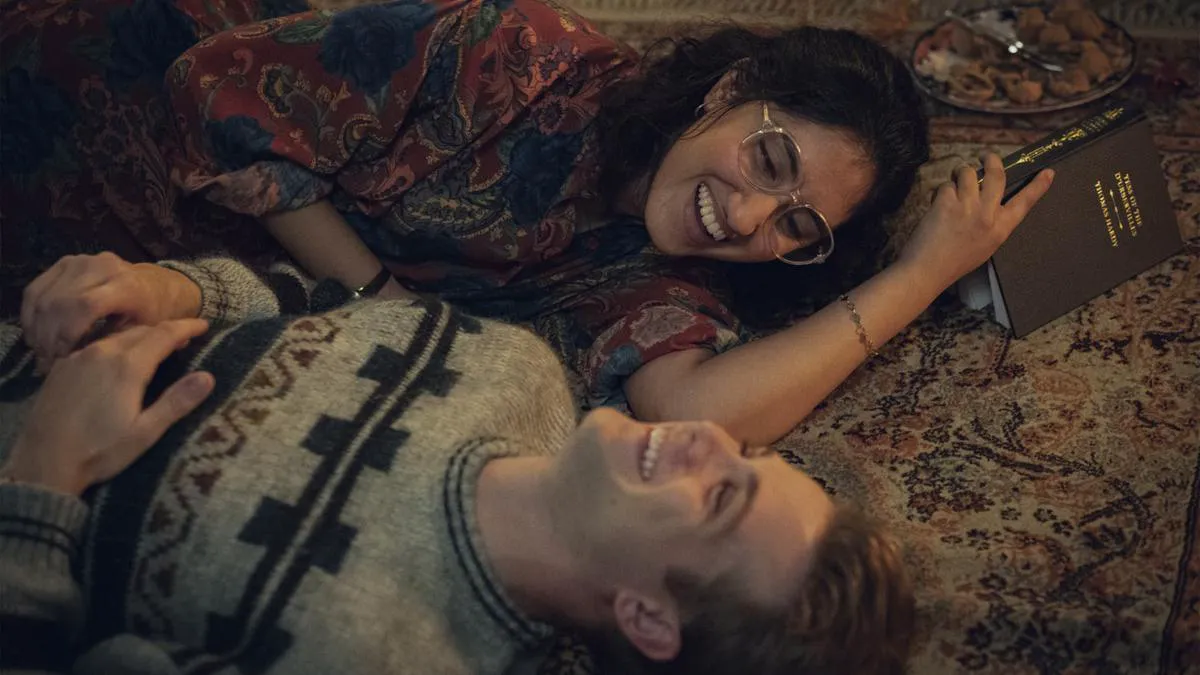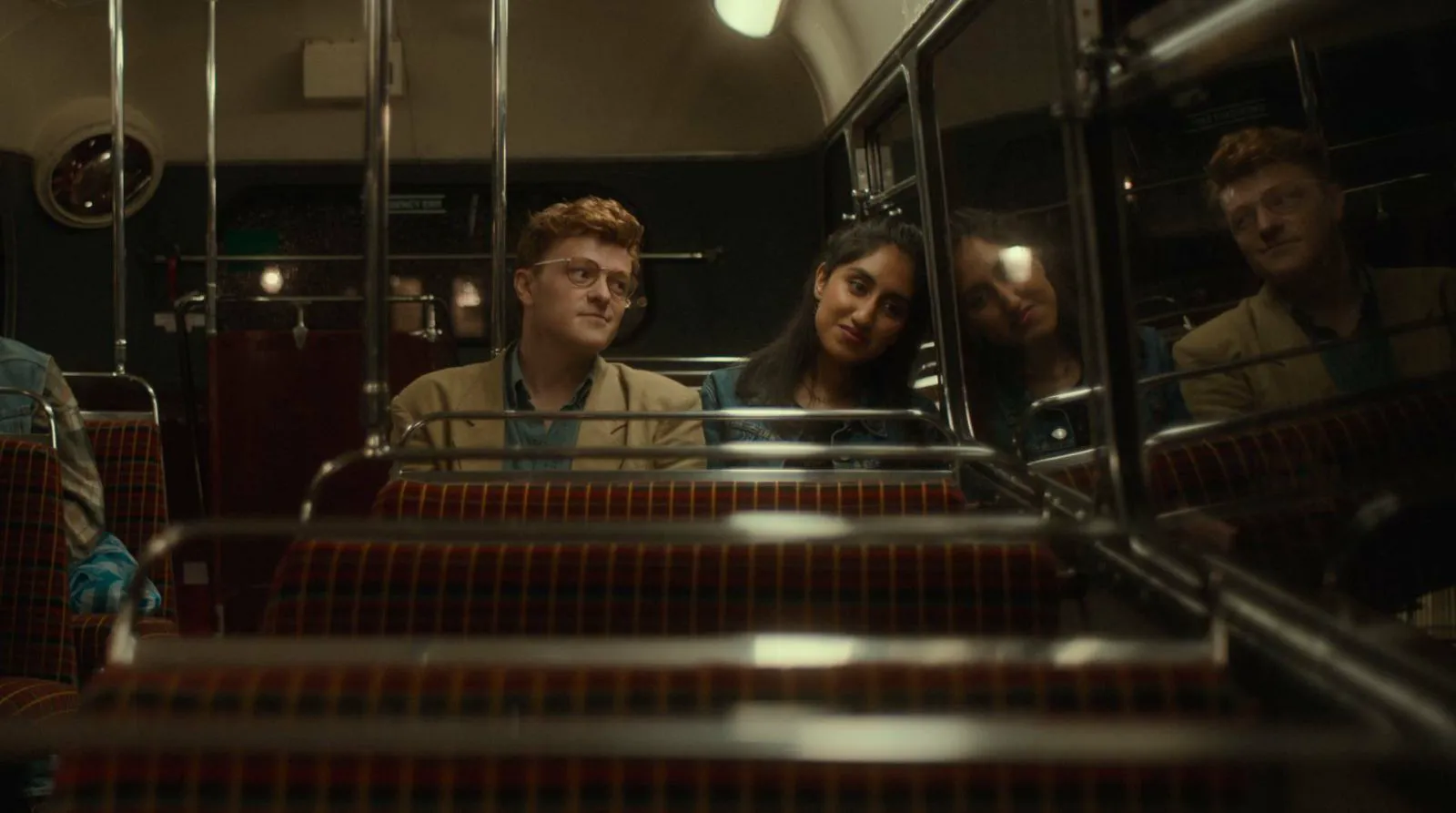In a world saturated with marketing attempts to reinvent the love story, Netflix has unearthed a novel reminiscent of Nicholas Sparks’s sentimental tales. However, David Nicholls’s “One Day” offers a slightly deeper, more realistic portrayal of two ordinary individuals navigating familiar romantic challenges. What sets Nicholls’s bestseller apart is its unconventional, tragic ending, prompting reflection rather than tears. Drawing inspiration from Thomas Hardy’s “Tess of the d’Urbervilles,” Nicholls weaves a love story around the theme of mortality, both literal and metaphorical, challenging the conventional “happily ever after.”

Ambika Mod as Emma Morley in “One Day”
The Netflix Adaptation: A Fresh Perspective
Amidst the popularity of anti-romantic comedies and a general weariness of predictable love stories, a Hollywood adaptation of “One Day” was inevitable. However, the initial film adaptation fell short. Instead of a poignant exploration of gender biases and social inequalities, director Lone Scherfig delivered a rather formulaic romantic comedy starring Anne Hathaway and Jim Sturgess. Netflix’s new adaptation aims to capture the true essence of Nicholls’s novel, offering a fresh perspective on the story.
A Chronicle of Two Lives
Set in Edinburgh in 1988, the series introduces Emma Morley (Ambika Mod), a studious and reserved young woman, and Dexter Mayhew (Leo Woodall), a charismatic and carefree charmer. After spending the night together after graduation, they decide to remain friends. Over the next two decades, Emma and Dexter’s lives intertwine as they evolve from ambitious students into adults grappling with their purpose. While Dexter achieves success in television, Emma struggles to realize her dreams of becoming a writer. Their personal lives are equally complex: Dexter resists commitment, and Emma eventually gives up waiting for her chance at love. Despite their challenges, they remain close confidants.

Leo Woodall as Dexter Mayhew in “One Day”
The Creative Team Behind the Series
Nicole Taylor, known for her work on “Secret Diary of a Call Girl” and “Dracula,” serves as the showrunner for the new adaptation of “One Day.” The directorial team includes Molly Manners (“Urban Myths”), Luke Snellin (“My Mad Fat Diary”), and John Hardwick (“Brassic”). Nicholls himself penned the screenplay for the penultimate episode, where the story reaches its climax. Learning from Scherfig’s past mistakes, Taylor prioritizes realism and character development. While the first adaptation of “One Day” was a conventional romantic comedy focused on privileged white characters, the Netflix series embraces inclusivity. Ambika Mod, known for her role in “This Is Going to Hurt,” portrays Emma, while Leo Woodall, who appeared in the second season of “The White Lotus,” plays Dexter. Both actors bring their previous experiences to their roles, with Ambika embodying a neurotic perfectionist and Leo portraying a privileged young man. Fortunately, their characters evolve significantly throughout the series, undergoing transformations before ultimately finding their way to each other.

Ambika Mod as Emma Morley in “One Day”
A Journey Through Time
The series format allows for a detailed exploration of the novel’s timeline. Each episode of “One Day” takes place on June 15th, but each year is different. As the protagonists evolve, so does the era, with outdated library books giving way to Macintosh computers, cell phones, and MacBooks. The series’s soundtrack also reflects the changing times, featuring trip-hop for the nineties and electro-funk for the noughties. Each episode captures the fleeting nature of fashion, the fluidity of morals, the impermanence of feelings, and the elusive essence of life itself. Over two decades, the main characters meet and part, marry and divorce, build careers and face financial ruin, drifting along and running from circumstances, but most importantly, they remain constants for each other.
Love as a Constant
In this sense, Tyler’s series managed to extract from the book what Scherfig’s feature film failed to show - Nicholls’ idea that in the endless whirlpool of everyday life, the only constant can be love, which, unlike pop culture trends, does not die out under the influence of new trends and does not go into oblivion. In this focus, even the seemingly tragic ending of the book receives a completely different reading: death can take a loved one, but will never take away the feeling, because it exists outside of time and is not subject to the influence of the outside world.